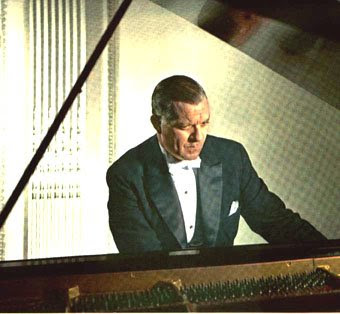
Today on this priest's Web log that I look in on from time to time they were duking it out about whether or not orchestral Masses are a good idea. Meaning, do you allow Masses by Mozart and Haydn or do you stick with Gregorian chant?
This is the hard-core Catholic crowd I run with. Leave it to them to find Haydn controversial.
You know me, I had to weigh in. Above is a picture of me preparing my screed. And now here is what I wrote. Ahem.
I love this topic! As the music critic at The Buffalo News, as well as a trad Catholic who attends the TLM, I have thought a lot about it.
When I began attending the TLM a year and a half ago it made me think about the Mass for the first time in my life and how mind-bending it is. You are asked to believe the impossible, often before you have even had your first cup of coffee. Anything that helps you with this is good. That is one reason we have beautiful cathedrals and churches, artwork, etc.—even the beautiful words of the Latin Mass. Great art and music is a mystery in itself and it helps bring us closer to understanding what cannot be understood.
I have thought for a long time what a shame it is that most Massgoers are stuck with these modern uninspiring songs I once saw the Wall Street Journal describe as “light Broadway”—when the Catholic Church can claim many of the most glorious musicians who ever lived. The great sacred works of Mozart, Beethoven, Schubert, Haydn, Vivaldi, Bruckner and many others are deeply personal expressions of these composers’ Catholic faith. And I find it tremendously moving to think of the great Catholic composers in Elizabethan England, including Thomas Tallis, John Dowland and William Byrd, who risked their lives to create the music they did.
It is such a treasure we have, this wealth of music. And I find it helps my faith. The music is in many cases supernaturally beautiful. It speaks to our subconscious and brings us—me, at least—closer to the sacred mysteries we are challenged to get our minds around. I also think that by presenting this music as prayer, we are doing honor to God by offering Him the best of ourselves, the best that the human mind has been able to create.
I am passionate about Gregorian chant, too. Since I have gotten to know it better because of the TLM, I sometimes notice how classical composers, who I would imagine grew up with this chant, were inspired by it. I do not think we should have to choose between the two genres.
What we do have to choose between are good music and bad music. And in this P.C. era, that’s where things can get dicey. Bravo to Pope Benedict for confronting what has become a very problematic situation. I am so grateful!
Hmmm. Now I think it is a bit term paper-y but still. It is fun to have your say.
On second thought I am not sure I did have much of a say. I read the other comments but it does not appear anyone read mine. I was wondering if anyone was going to jump in and challenge me, say, on Beethoven's Catholic faith. I probably should have left the word "Catholic" out of that sentence and just said "faith." But no one challenged me!
Well whatever. Now they are up to 101 comments!
If you like you can join the fun here.






























